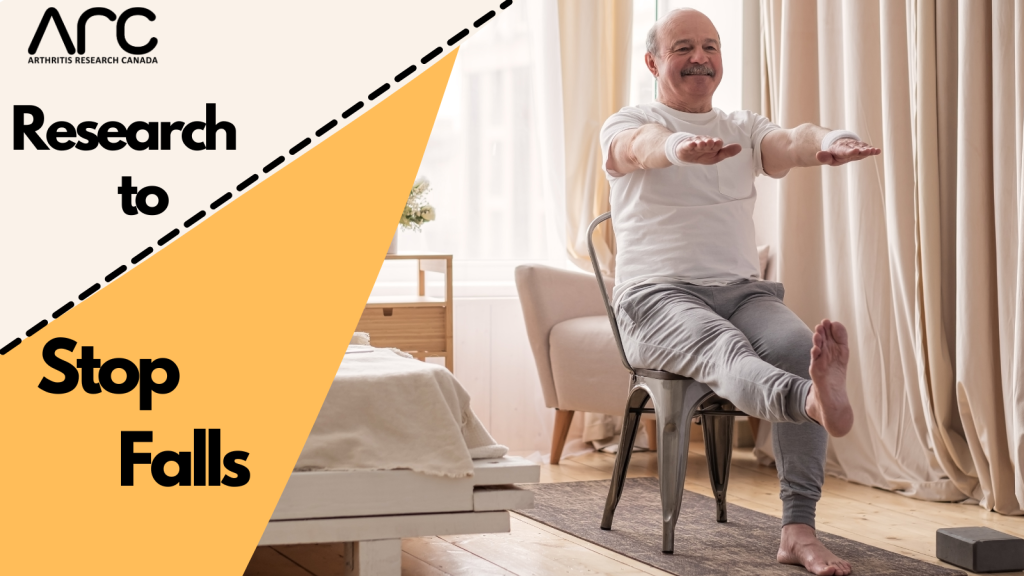
Falls are a major health care problem for older adults. They account for 50 per cent of injury-related hospital admissions, 40 per cent of nursing home admissions, and a 10 per cent increase in home care services.
Many adults over age 65 with arthritis are also physically frail, which increases their risk of falling. More than 6 million people in Canada have arthritis and the number of older adults in the country is expected to grow to 10.4 million by 2037.
We are working to find ways to prevent serious falls in this vulnerable, growing population.
One in five older adults (age 65+) living in the community fall every year and 10-15 per cent of these falls result in injuries that require emergency department visits. Six per cent lead to hospital admissions. About 40-50 per cent of older adults with osteoarthritis are physically frail, which increases the risk of falls.
The Otago Exercise Program was developed by a group of researchers at the University of Otago in the 1990s and consists of strength and balance training delivered by a physiotherapist. There is strong evidence that it can reduce falls in older adults, but only 25 per cent of people who start the program, continue with it over time.
Arthritis Research Canada’s team of scientists is working on developing a tool for physiotherapists to better support older adults to continue with the Otago Exercise Program over time. This includes counselling techniques, as well as the use of an app so participants can record and easily share their progress with their therapists.
“We know that the Otago Exercise Program works, but only if people do it,” said Dr. Linda Li, Senior Scientist at Arthritis Research Canada and Principal Investigator on the Falls Prevention Study. “It has been shown with evidence over the last 20 years that the Otago Exercise Program can help reduce the risk of falls. One of the studies done in British Columbia showed that exercise programs can reduce falls by over 50 per cent in older adults who are frail and have fallen in the past.”
To learn more about Arthritis Research Canada’s Fall Prevention Study, click here.